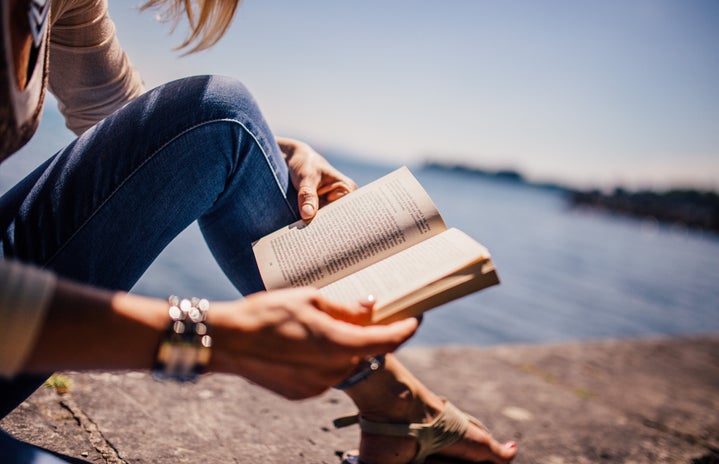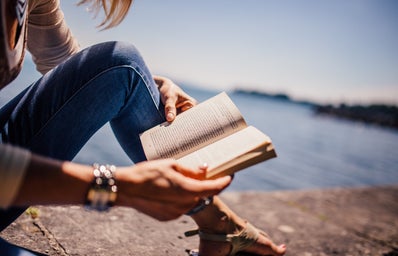If there’s one thing I love in fictional media, it’s female characters who are terrible. Whether they’re just kind of unlikable or downright evil, I love female characters who do terrible, selfish, unthinkable things. In some cases I may defend the character and her actions as being “not that bad” or actually justified, but even when there’s no getting around a character’s atrocious behavior, those are still the characters I’m most drawn to. As strange as this quirk of mine may seem, I don’t think I’m alone in this nor do I think it’s actually that weird.
The first reason for this affinity of mine is that women are almost always held to a higher standard than men. There are so many female characters deemed “unlikeable” who would just be called three dimensional if they were male. Whether they’ve been given that label due to the narrative they exist in or as fan-response to a more sympathetic or objective narrative, girl characters who are fully fleshed out characters, warts and all, are characters I will always defend. But those characters—mostly-normal people who are perceived by many as unlikable—aren’t exactly who I’m referring to. I’d take it a step farther and say I love female characters who are actual jackasses or genuinely evil.
One reason for that is, as part of the higher standards women are held to, that women are expected to be “good.” Virtuous, beautiful, supportive, selfless, you name it. Women are often put on a pedestal, and any woman who falls short, or dares to reject those characterizations all together, is tried and hanged in the court of public opinion (in real life or in a fanbase). To me, seeing a female character, safely in a fictional world where actions don’t do real damage, reject that pedestal and go completely in the other direction, is incredibly cathartic. Call me spiteful, but I love to see a fictional woman or girl decide to be the exact opposite of what society sees or wants to see her as. While I strive to be a morally good person, it’s like a weight comes off my shoulders to get to read about or watch a girl be terrible. It’s like an exaggerated version of being told it’s okay to be less than perfect.
The feeling that women need to be perfect is suffocating. The book Wilder Girls by Rory Power is one that will always stick with me for the way its three female protagonists defy the expectations placed on girls. While these characters would do anything for each other, they frequently make selfish, messy choices, especially at the very end. They’re the kind of heroines I don’t expect, especially in a Young Adult book, and for that they mean the world to me. One detail from the book that spoke to me was one of the main characters’ reaction to the illness infecting her and the other characters which causes ghastly changes to their bodies. This specific character actually appreciates the monstrous changes to her body, remarking that she looks on the outside how she feels on the inside. There is something so freeing in the idea of abandoning societal expectations and just getting to be flawed—even monstrous.
Going further into the extremes of terrible female characters, sometimes I like a female character for how fun it is to see her be bad, while at the same time I like her extra out of pettiness when I don’t actually think she’s as bad as people say. Consider East of Eden by John Steinbeck. In a book chock full of biblical allegory and themes about good vs. bad, it’s hard not to be annoyed that one of its very few female characters is meant to be the epitome of evil. I would honestly defend a number of things Cathy does, and much of her villainization stems from her refusing to be a woman the way other characters, and likely the author, thinks she’s supposed to be. Some of her actions are truly terrible, but I find it frustrating that she’s meant to be viewed as pure evil. For similar reasons, I’m always quick to defend Shakespeare’s Lady Macbeth. Most of my 11th grade class decided she was the most to blame for the play’s events, but I honestly see their attitudes as plainly sexist. She may be partially to blame, but are we really still holding a woman responsible for a man’s actions? They’re no saints, but it’s misogynistic to totally villainize characters like Cathy and Lady Macbeth when their male counterparts, who also do terrible things, are afforded so much more sympathy.
Ultimately, atrocious characters of any gender are simply fun to read about (or watch, though I realize I haven’t included any TV or movie examples. Oops!). Sometimes when that atrocious character is a woman, it also opens the door for a story with themes relying on or relating to gender. There’s a reason books like Gone Girl by Gillian Flynn and more recently A Certain Hunger (the fictional memoir of a female food critic turned cannibalistic killer) by Chelsea G. Summers are so popular with women. In a fictional world it’s entertaining to see manipulative or murderous characters do whatever it takes to get their way, and it’s also entertaining when those stories make a statement about gender or simply depict a woman getting back at the men who’ve wronged her (even if they’re going overboard). Books like those accomplish both. Gaslight, gatekeep, girlboss, as they say!
However, women with intersectional identities often face different expectations. For example, queer women, especially lesbians, are frequently demonized. The “predatory lesbian” trope depicts lesbians as villains who take advantage of women, especially straight women. I tend to avoid consuming media that subscribes to such homophobic notions, but lesbian and queer female characters who are awful but are created by queer women are cathartic to me, too. The difference is that we write characters who are both queer women and awful people, not characters who are awful because they’re queer women. Even when the representation isn’t so genuine, I may once again like a terrible queer woman character out of annoyance at her portrayal or fan reception. A character may be “bad representation” or play into homophobic stereotypes, but I’ll choose to love her out of spite.
The final reason I love terrible fictional women is this: If people who are attracted to men get to thirst over morally gray and evil male characters, then I get to thirst over morally gray and evil female characters. Terrible women are hot, and I stand by that. Whether it’s out of feminism, spite, or being into women, I will always love fictional female characters who are just awful.


